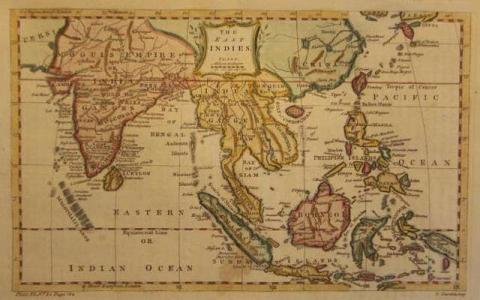Research areas and projects

This section showcases the research projects undertaken by members of the Centre for South and Southeast Asian Studies (CSSEAS).
The projects reflect the diversity of the Centre’s scholarly interests and address themes related to the societies, cultures, languages, literatures, religions, histories, and political dynamics of South and Southeast Asia.
Through international collaboration and interdisciplinary perspectives, CSSEAS members actively contribute to the creation of innovative knowledge about one of the most complex and dynamic regions of the contemporary world.
HELLO Campania (Heritage Languages and Languages of the Others, PI: Francesca Romana Moro) is a project dedicated to heritage languages in the Campania region (Italy). Heritage languages are languages spoken by first- and second-generation migrants. The project aims to study the linguistic choices and multilingual practices of heritage language speakers from Ukraine, Sri Lanka, the Philippines, and Bangladesh. The project is carried out by two research units: the University of Naples L'Orientale and the University of Naples Federico II.
EartHeritage (A cultural rescue initiative for earthen heritage: An interdisciplinary, diachronic and trans-areal approach to interconnected artistic productions in clay and stucco in Iran, Iraq, Central Asia and the
north of the Indian subcontinent, 3rd cent. BCE-8th century CE, PI: Anna Filigenzi). The project builds on an integrated approach, multi-disciplinary and trans-regional, which is not solely concerned with best-preserved forms but also with the informative potential of any relevant archaeological trace and fragment (often underestimated and therefore more at risk of being lost). Based on a solid nucleus of data (already partly available to the team) and with the aid of archaeometric investigations, hypothetical reconstructions will be attempted of iconographic motifs and decorative programmes, as well as of the technical aspects of production. The collected data will be made available in the form of a user-friendly digital catalogue and used within the same platform to create a virtual museum, as a space where research and dissemination meet.
Other units: Sapienza University of Rome (responsible: prof. Ciro Lo Muzio); University of
Bologna (responsible: dr. Luca Colliva).
Funding: Total €194,376.00; Naples local unit €99,676.00 (external €81,476.00). Funded by: Ministry of Education, University and Research - Next Generation EU
The “Wheel of Time”: An Inquiry into New Sources of Late Indian Buddhism (X–XIII cent.) (PI: Francesco Sferra).

